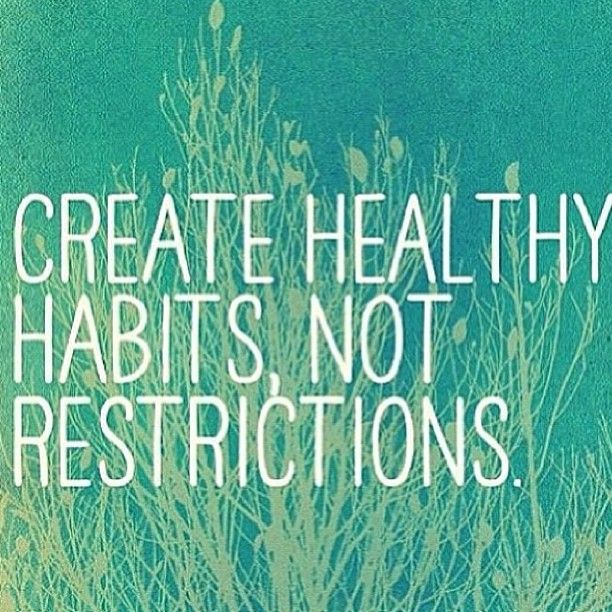
Create Healthy Sleep Habits
In the health and wellness world, sleep is the unsung hero that can make all the difference in reaping the benefits of a balanced diet and regular exercise. They are each an equally important aspect that contribute to your overall health. So, if you neglect any of them, it is not ideal. When sleep is compromised, it impacts your energy, memory, immune system, and ability to manage stress. Sleep, it does a body good.
With busy schedules and packed days, sleep is usually the first to be abandoned. That is why when discussing sleep, diet, and exercise with clients, I often start with sleep habits. Adequate sleep helps maintain a healthy immune system and plays a vital role in maintaining a healthy weight. Besides falling asleep during the day and having reduced energy, lack of sleep can disrupt your metabolism. Hello! You had me at metabolism!
Even if you are eating well and exercising, lack of sleep will eventually catch up with you and negate the positive choices you made during the day. Studies suggest that lack of sleep can cause depression, anxiety, and other mental health issues. Not only that, when you are tired you are going to crave high energy foods like sugar. Tiredness can also increase levels of cortisol, which has been shown to raise the likelihood of your body to store fat. If you are spending loads of time and effort improving your exercise regime and diet, do not ruin it by ignoring healthy sleep habits.
Getting the recommended seven to eight hours of sleep each night is important, but consistency in the time of day those sleep hours occur plays a major role in regulating our internal body clocks. This is key because it regulates your sleep-wake schedule, metabolism, and immune response. So, going to bed at the same time will help you listen to your body clock instead of an alarm clock.
In 2016, the CDC reported one in three adults get less than the recommended seven hours of sleep. Lack of sleep can result in an increased appetite due to increased levels of the hunger hormone ghrelin and decreased levels of the appetite-control hormone leptin. When you sleep too little, your body’s hormone production goes awry and you produce more ghrelin, which makes you hungrier than usual and makes you eat more fatty foods.
Poor sleep also affects concentration at work and on the road. Long-term, sleep deprivation affects mortality too, aging the brain three to five years and seeing a 33% increase in dementia risk. Sleeping seven to eight hours a night offers the brain and body a chance to rest, restore, and recharge. Hormone balance, improved mood, appetite control, and increased focus are only some of the benefits of a good night’s sleep.
So, what can you do to improve your sleep? I am so glad you asked! Start by creating a relaxing space for yourself by making the bedroom dark and cool (cool bodies sleep better). Try eye masks, ear plugs, lavender oil, or white noise machines to aid sleep. Probably one of the biggest things you can do is to remove technology from your bedroom. The blue light that comes off screens mimics the light of full daylight, messing with the secretion of melatonin and ultimately affecting your sleep patterns. We are all guilty of scrolling through our phone late into the night, so leave it in another room and remove the temptation completely. Grab a book instead and read yourself to sleep.
Beyond the space you create, you can also prepare yourself for sleep by instilling bedtime rituals. Having a decent bedtime routine will wind your body down and ease you into sleep, so that as soon as you get into bed and turn the lights off you will fall asleep. Again, turn off the technology at least an hour before sleep and read, journal, stretch, or meditate to relax. Sip on herbal tea or cherry juice and enjoy your dinner at least three hours before bed to digest. Avoid long naps throughout the day that end up making you feel more lethargic than well-rested. There are so many things to try, just pick one and see what works for you.
Like the bedtime rituals you instilled, a good start to your morning sets the tone for your day. Go outside and bask in the sun for just a couple of minutes, take time to stretch, have some positive thoughts, chant your own mantra or put on some of your favorite music and bust a move.
It is important to remember that sleep is inherently linked with how we eat, how we exercise and how we function daily. Better sleep means more energy, and this is a big advantage for your workouts. It is a wonderful cycle of positive effects that contribute to your overall health. Equipped with a good night sleep and a peaceful morning, you are ready to tackle the day and whatever comes your way.
References:
CDC Newsroom. (2016, February 16). Retrieved from https://www.cdc.gov/media/releases/2016/p0215-enough-sleep.html
Finan, P. (n.d.). The Effects of Sleep Deprivation. Retrieved from https://www.hopkinsmedicine.org/health/healthy-sleep/health-risks/the-effects-of-sleep-deprivation
Holmes, L. (2015, March 30). The Simple Hack That Will Help You Sleep Better This Spring. Retrieved from https://www.huffingtonpost.com/2015/03/30/fresh-air-helps-sleep_n_6926736.html
What is REM sleep? (2016, December 1). Retrieved from https://www.nichd.nih.gov/health/topics/sleep/conditioninfo/rem-sleep









